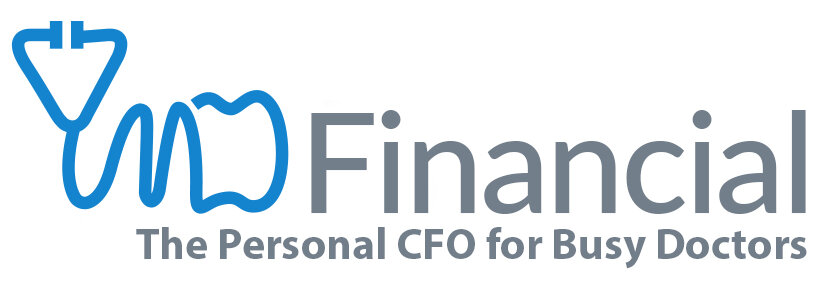Doctors, when it comes down to it, retirement is likely going to be the most expensive purchase of your lives. As a business that deals directly with doctors’ personal financial concerns, we are often asked questions such as: “Will I have enough money to retire?” and “When will I run out?” But one question we don’t get very often, that should be asked is: “Is my money positioned in the right type of accounts?” Today we will discuss the different types of retirement accounts, their tax consequences, and how to get the most out of them when it really matters.
Why do we think that this question about account types should be asked by doctors investing in their retirement? Because taxes have a BIGGER impact than any market swings on your retirement funds. The old school of thought concerning the amount of taxes you owe in retirement was “push them into the future.” This theory does NOT work anymore! Now, we want to diversify our income into multiple areas to make sure we’re set up for success with taxes now AND in the future. To demonstrate, let’s go over the tax-control triangle, or what we refer to as the different "tax buckets".
There are three separate tax buckets:
Tax-Now Bucket (Taxable):
Account types - Brokerage, non-qualified, real-estate, savings, CDs, money markets, and more
Taxed on capital gains of profits (usually long-term capital gains)
Pro
These “tax-now” funds are more liquid, no withdrawal penalties (except for Real Estate)
Con
Tax burden reduces the rate of return
Essential for emergency funds
Tax-Later Bucket (Tax Deferred):
Typically called “retirement accounts”
Account types - 401ks, 403bs, 457s, IRAs, SIMPLE IRAs, SEP IRAs, and more
Pro
Reduces taxable income now
Con
Taxed as income later, which could be a higher tax bracket than it is today
High penalties for taking money out early, on top of being taxed at your current income rate
Tax-Free Bucket:
Although the money going into the accounts is taxed, all of the gains are not taxed
Account types - 529 College Savings Plan, Roths IRAs, Roth 401k, Roth 403b, Municipal Bonds, certain Investment Grade Life Insurance policies
Health Savings Account - A great additional way to get tax free funds for later
Pro
Tax free money in retirement
Con
High penalties for early withdrawal
Ways to get money into this bucket:
Work Roth accounts
Utilizing the Backdoor Roth strategy—works for some
Indy/Solo Roth 401k, if you have side income in the form of a 1099 income
Convert IRA money to a Roth IRA
“Don't get fixated 100% on saving taxes this year, take the long-term view into consideration."
Where to start:
Tax-now: For liquidity
Tax-deferred: At least up to the % matched by your employer
Tax-free: There are a few ways to get money into this bucket. If you are unsure how to do this, feel free to reach out to us by emailing info@mdfinancialadvisors.com.
Having money in each bucket leads to flexibility in retirement. Every year the amount that should be put into each bucket should be reassessed. With these three tax buckets working in unison, we’ve seen doctors save millions in taxes. If you have an existing IRA or old work plan, reach out to us to see if converting those funds to Roth would make sense to you.
Listen on Apple Podcast or Google Podcast
CONTACT US
1-888-256-6855
Katherine Vessenes, JD, CFP®, is the founder and CEO of MD Financial Advisors who serve 500 doctors from Hawaii to Cape Cod. An award-winning Financial Advisor, Attorney, Certified Financial Planner®, author and speaker, she is devoted to bringing ethical advice to physicians and dentists. She can be reached at Katherine@mdfinancialadvisors.com.
FOLLOW US ON SOCIAL MEDIA
Remember to follow us on social media. If you found this topic helpful, please forward it to colleagues. If you ever have questions or topic ideas for future episodes, feel free to email us at info@mdfinancialadvisors.com. Finally, you can reach out to us directly for a second opinion on your financial health, we offer the first consultation completely complimentary.

![The Tax Triangle for Doctors [Podcast]](https://images.squarespace-cdn.com/content/v1/561feb4ee4b0de0eb30d6d3c/1605823243996-S3IULTQJB443VUUOY643/carolyn-v-lthWC8oevDg-unsplash.jpg)
